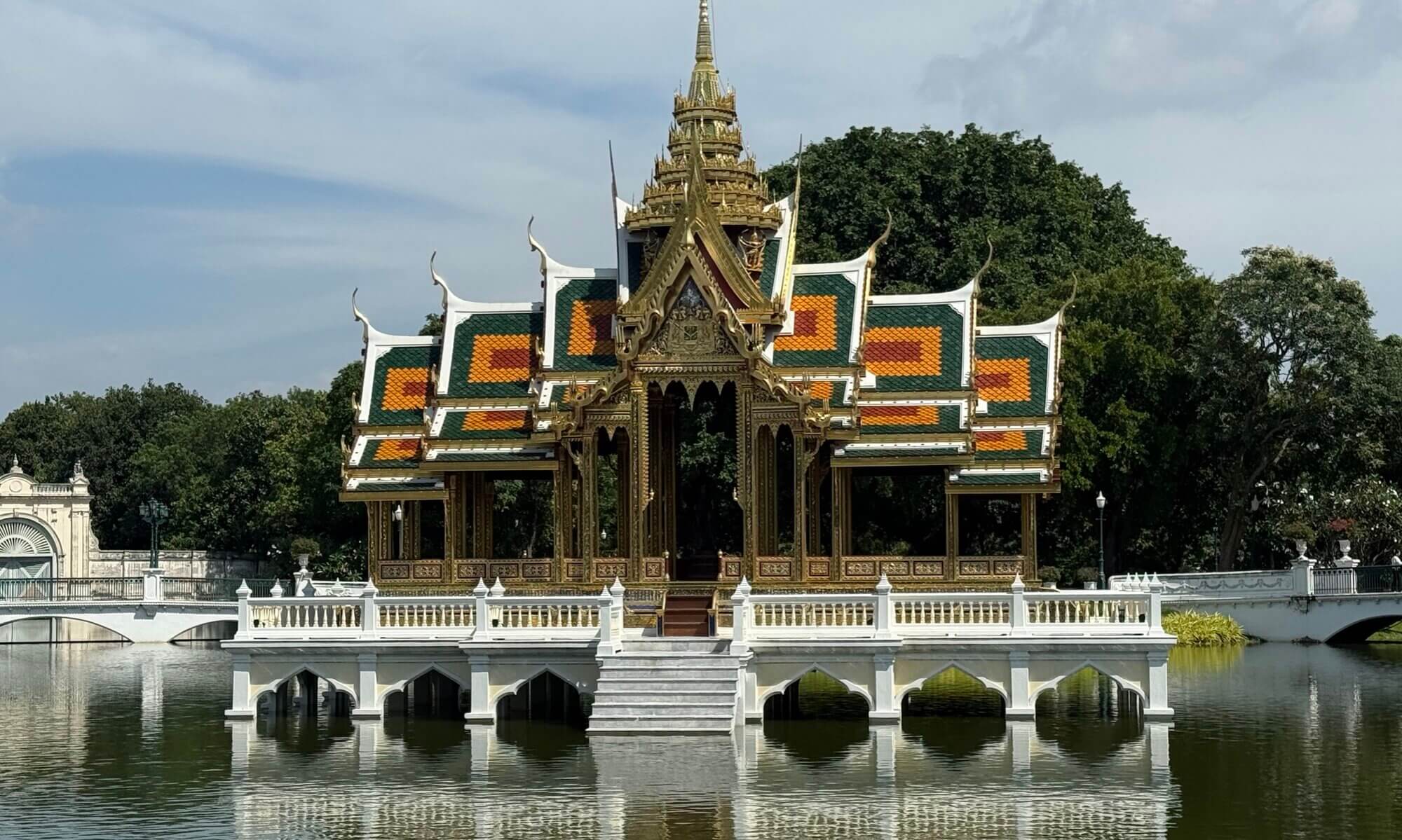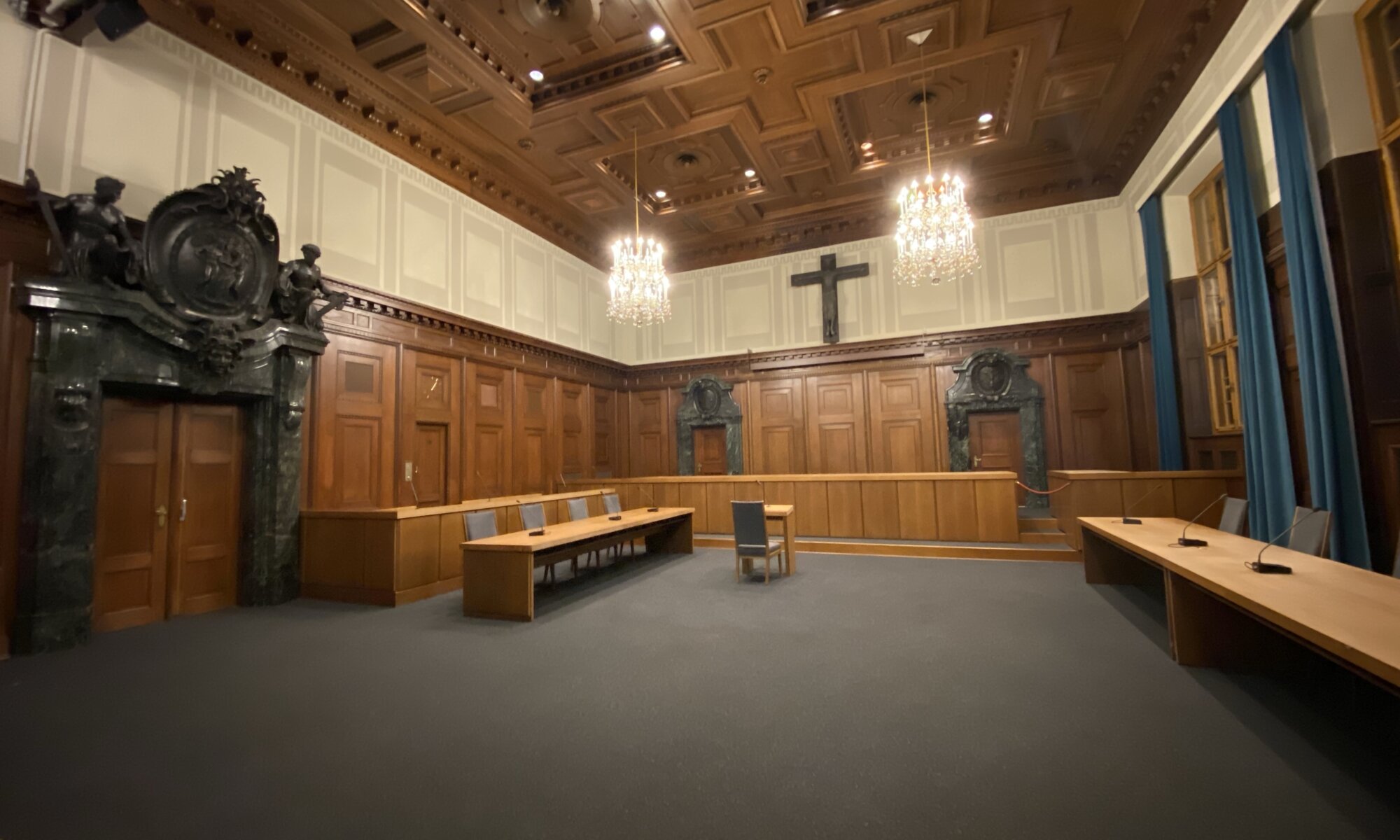During the times of Nazi Germany the city of Nürnberg was very important as the NSDAP Nazi party planned to hold their party conventions there. On the Reichsparteitagsgelände different vast buildings in fascist architectural styles were planned and partially build. Later the city became important for another reason as the Nürnberger Prozesse against war criminals were held there. The allied forces took over room 600 of the Schwurgericht belonging to the Justizpalast of Nürnberg and prepared it for this very special trial.
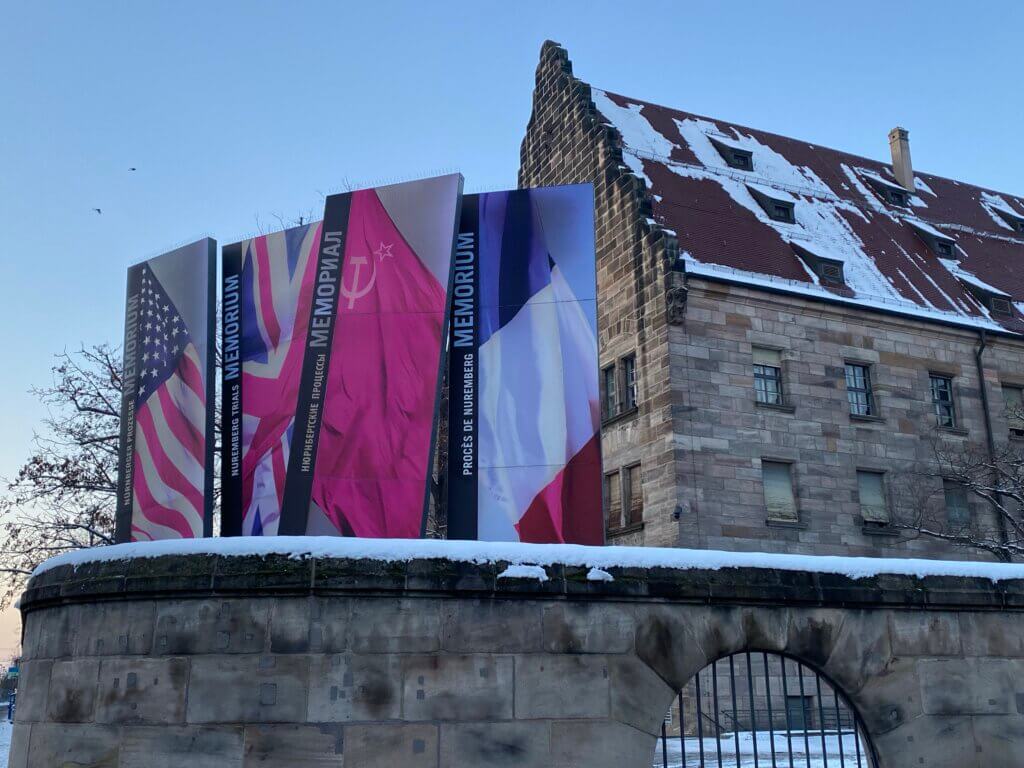
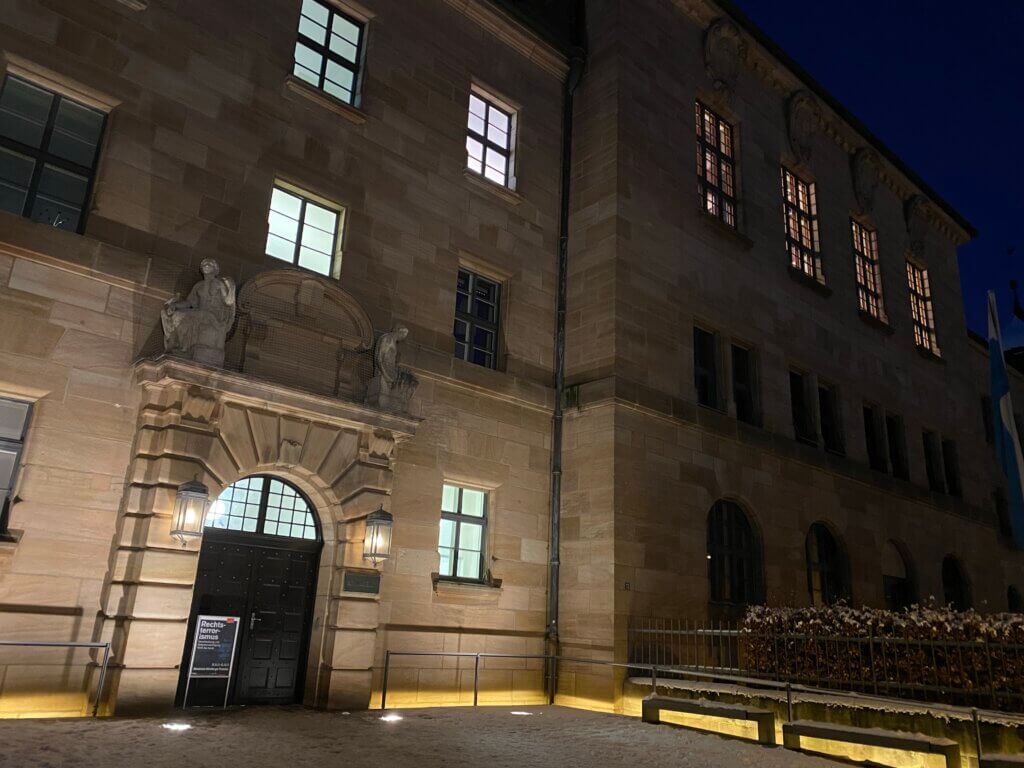
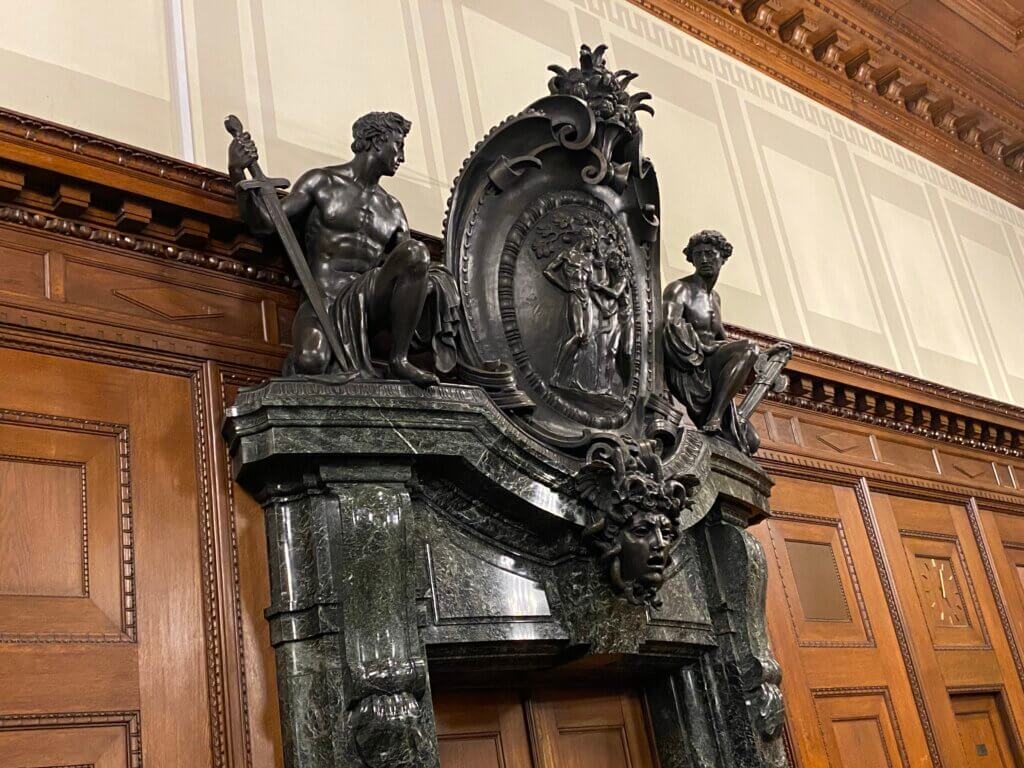
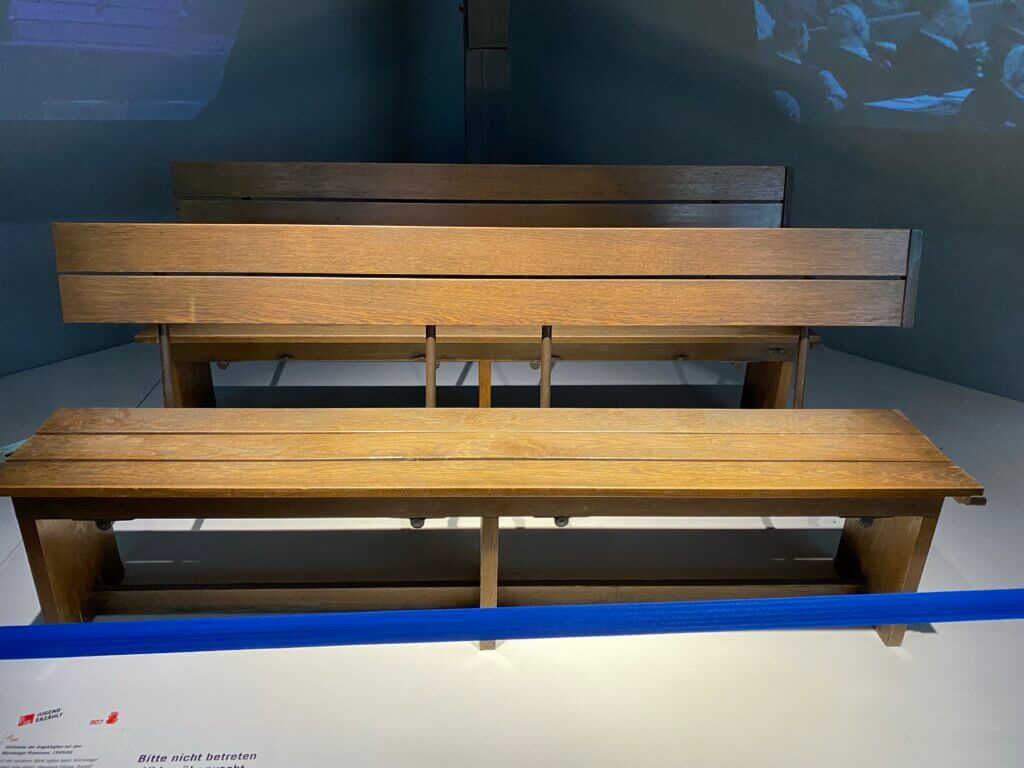
The Bavarian judiciary administration removed all the changes the allied forces did afterwards (like creating a grandstand for the press in the back) and still today uses it for trials (which feels a bit awkward). But that means you can still see this place important for German history and also for the history of international law. It is now part of the Memorium Nürnberger Prozesse, a history museum belonging to the city of Nürnberg.
After the breakdown of the Drittes Reich, some of the main criminals had convicted suicide. This includes Adolf Hitler, Heinrich Himmler, and Joseph Göbbels. But what shall happen with those captured alive? With people like Hermann Göring, Rudolf Heß, Martin Bormann, Karl Dönitz, Wilhelm Frick, Alfred Jodl, Ernst Kaltenbrunner, Wilhelm Keitel or Julius Streicher? After World War I war criminals were given to their home countries for punishment, but with little success. How to act so that justice is done and future wars are prevented?
‘That four great nations, flushed with victory and stung with injury stay the hand of vengeance and voluntarily submit their captive enemies to the judgment of the law is one of the most significant tributes that Power has ever paid to Reason.’
– Robert H. Jackson
The allied forces arranged an intensive trial. Each of the four parties (USA, UdSSR, Great Britain and France) named two judges and a prosecutor. The accused could choose attorneys, documents were screened, witnesses heard. The trials were held according to Anglo-American jurisdiction which was special for the Germans: not only the cross-examination, but also the fact that prosecutors don’t need to share relieving facts, that there is no neutral investigation. Still today the opening words of US prosecutor Robert H. Jackson are impressive and showing how important a fair trial was seen.
‘We must never forget that the record on which we judge these defendants today is the record on which history will judge us tomorrow. To pass these defendants a poisoned chalice is to put it to our own lips as well.’
– Robert H. Jackson
Four prosecution charges were part of the trial: conspiracy to crimes against peace, preparation and execution of an aggressive war, war crimes, and crimes against humanity. The defense was largely built on the arguments that you can’t punish a crime for that no law existed upfront (nullum crimen sine lege praevia, nulla poena sine lege) and that other countries were also involved in war crimes (tu-quoque), like bombing German cities or the involvement of the Soviet Union into the invasion of Poland.
After the main criminals were punished a dozen additional processes followed. This way to punish important persons after a war paved the road to a good international law and the establishment of the International Criminal Court (ICC) at Den Haag, the Netherlands. That Slobodan Milošević was accused in front of the ICC as a central actor in the Yugoslav Wars should show state leaders that their deeds don’t remain unpunished in the future. What a tremendously important step!
Justizpalast Nürnberg
Schwurgericht
Bärenschanzstraße 72
90429 Nürnberg
Germany
https://museen.nuernberg.de/memorium-nuernberger-prozesse/
Loading map...

